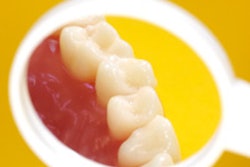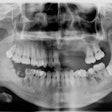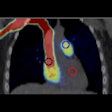Researchers from the University of Louisville School of Dentistry have found a way to prevent inflammation and bone loss surrounding the teeth by blocking a natural signaling pathway of the enzyme GSK3b (Molecular Medicine, September 11, 2012).
GSK3b plays an important role in directing the body's immune response, the university noted.
The finding not only has implications in preventing periodontal disease, a chronic inflammatory disease that causes tooth loss, but also may have relevance to other chronic inflammatory diseases. Since GSK3b is involved in multiple inflammatory signaling pathways, it is associated with a number of diseases and also is being tested by scientists for its impact in Alzheimer's disease, type II diabetes, and some forms of cancer, to name a few.
"The traditional approach to dealing with periodontal disease is to prevent plaque from forming at the gumline or prevent the consequences of periodontal disease progression," said lead author David Scott, PhD, in a press release. "Our approach manipulates a natural mechanism within our bodies to prevent inflammation and subsequent degradation when exposed to the bacterium [Porphyromonas] gingivalis."
GSK3b is known to facilitate the inflammation that occurs during bacterial infections, so blocking this enzyme from completing its normal function by using the GSK3-specific inhibitor SB216763 stopped the inflammation process and subsequent bone loss induced by P. gingivalis, Scott said.
The next step is for Scott and his team to determine whether SB216763 has any side effects or whether they need to search for a different inhibitor of GSK3b.


















